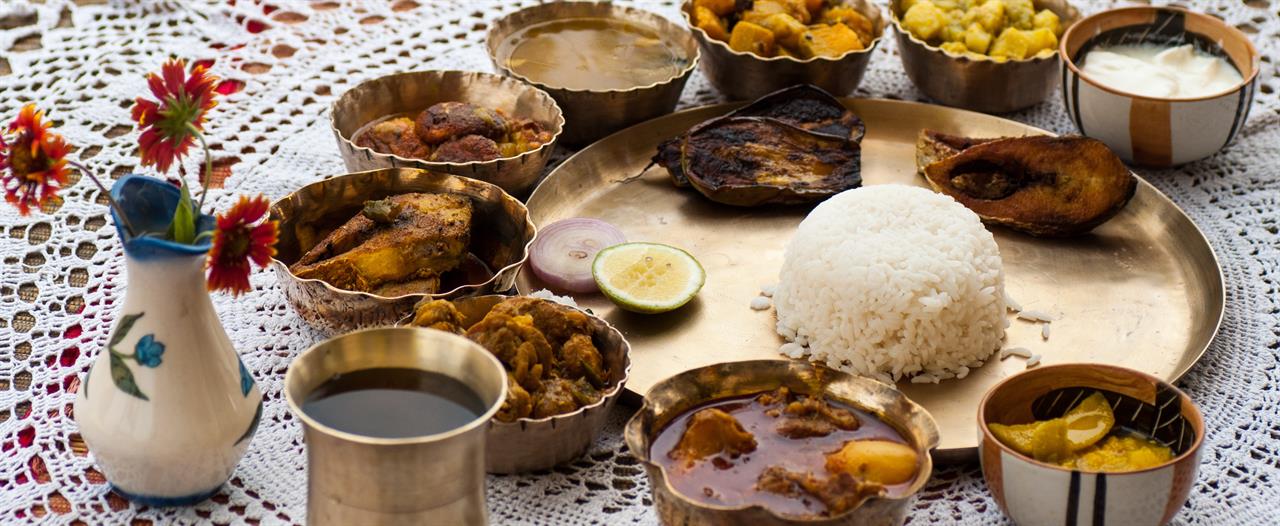
Jamai Sasthi
Assistant Editor | 16 Jul, 2025

Bengali culture is well-known for its festivals. It has 13 festivals in 12 months which is also depicted in the famous saying ‘baro mashe tero parbo’. West Bengal is considered as the land of festivals. All the festivals are celebrated with full enthusiasm, equal religious sentiments, and fervor. For maintaining the tradition and culture, the people of West Bengal strive hard. In the festivals of this land, a large number of fairs are also organized. Durga Puja, Kaali Puja, Basant Panchami, Dussehra, Bahi Dooj, Holi, Mahabir Jayanti, are some of the famous festivals of West Bengal.
One more very enjoyable and enthusiastic festival which is enjoyed in West Bengal is Jamai Sasthi. This day is committed to the son-in-law and is celebrated overwhelmingly in West Bengal. A large portion of the families sorts out a gathering on this propitious day. The festival of this celebration is an essential piece of the rich culture and convention of West Bengal. It falls on 19th June i.e. Tuesday this year. Social customs are to perfect way to express the flavor of family bonding. In India, there are so many customs which make this expression of family bonding even more prominent and significant. This custom is dedicated exclusively to the son-in-law.
It is a traditional Bengali ritual which is observed in June month on the sixth day of Jaishtha month. The son-in-law receives a grand treatment at his in-law’s house. All in-laws members especially mother-in-law is supposed to cook a variety of delicacies. They organize the whole celebration for the son-in-law. It is a fun custom full of happiness and enjoyment.
There is various kind of recipes that are prepared on this day. Celebrated with huge feast and exchange of gifts, the son-in-law is given a special and grand treatment. This day is enjoyed with full involvement of in-laws so that he treats their daughter properly and with love for the rest of the year. This custom makes a strong foundation for the entire family and the son-in-law gets to know his in-laws in a much better way.
The origin of this day begins when once a greedy woman who used to eat up everything that is cooked in the house. On asking her about the food, she used to blame everything on the cat. Being close to the goddess Sasthi, the cat complained about this to her. The goddess Sasthi hid all the children of that greedy woman in order to teach her a lesson. The lady becomes furious and started performing many rituals before the goddess to please her so that she forgives her. The goddess eventually got satisfied with her devotion and efforts. Then, she decided to return all her children back. Since then, all women started performing Sasthi puja for the welfare of their children.
This day has very simple rituals in which the son-in-law is welcomed along with the daughter in the house. A thali is carried by the mother-in-law which comprises the durbo (grass), grains, and five different types of fruits. The monther-in-law sprinkles the grains and durbo on the head of her son-in-law and offer him her blessings. After this, a mark is made by the mother-in-law on the head of her son-in-law by using curd. She also ties a yellow thread on his wrist.
The most crucial part of this day is the cuisine. All the delicacies are prepared by the mother-in-law for her son-in-law. The main dish on the priority of the list is Fish. Apart from this, rice, dal, pooris, prawn curry, and sweets are also served on the platter with love and affection. This day is celebrated with great enthusiasm to bring the son-n-law closer to the entire family. It also makes the family bond stronger.
Offering puja is also an important part of this entire festival. All the relatives are invited to celebrate this day to make it more enjoyable and fun. The day is regarded as auspicious and an integral part of the rich Bengali culture.
FAQ
Why do we celebrate Jamai Sasti?
To honor sons-in-law and fortify the ties that bind families together, Jamai Sasthi is observed.
How to perform Jamai Sasthi?
The son-in-law is invited to the house, traditional Bengali food is served, the mother-in-law performs rituals, and prayers are offered to Goddess Sasthi for his success and well-being as part of Jamai Sasthi.
Related News
- Social Media for Students: Where's The Line?
- United Nations: India A Founder Member Of UN And A Global Leader
- How Statue of Unity is Pride For Nation And Not The Wastage of Money
- Top Exams in India in the Arts section
- The Top 10 Law Exams in India
- Animation: The Art of Making Things Come Alive
- Increasing Number of Student Suicides in India
- Role of Women in Society
- Will I Lose My Job to the Robot?
- Child Labor
- Unity in Diversity in India
- Biography of Lord Swaraj Paul
- The Magnificence of Parallel Cinema
- Sarojini Naidu – The Nightingale of India

